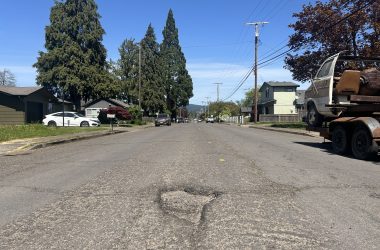
Coming out of the historic year that was 2020, there are some once unfamiliar words and phrases that have now become commonplace: social distancing, personal protective equipment, Delta variant, mRNA, and more. From a business perspective, the term Paycheck Protection Program (PPP) certainly ranks at the top of the list.
This massive lending program administered by the Small Business Administration (SBA) spent billions upon billions of dollars to literally save millions upon millions of jobs and small businesses. While certainly far from perfect, it’s inarguable that without the PPP, the U.S. economy would have spiraled down into a depression of epic proportions.
Yet now that we appear to be emerging from the COVID-19 economic swamp and into something approaching a pre-pandemic normal, many business owners may be wondering: “Is now a good time to try to secure a loan given that so much money was handed out last year?”
The short answer is yes. There is money available and lenders who are ready to lend. The key is seeking the right type of loan through the right type of entity.
“The stream of lending and other capital resources from banks and the SBA during a typical year is like a strong output from a garden hose,” Scott Bossom, senior vice president and SBA lending manager for Columbia Bank, recently told me. “However, in 2020 it was like a fire hose due to strong necessity. Now, it’s returning more toward that garden hose level, which may seem like an abrupt halt to some small business owners but is really just a readjustment.” Bossom should know; he was a former lender relations specialist at the Portland SBA office and now leads Columbia Bank’s SBA program, which is the largest in the state.
Bossom suggests business owners looking for a loan contact the SBA right now. “While the fully forgivable loans from the PPP are gone, the SBA is still waiving significant fees for loan applications, but they end Sept. 30 and could cease earlier if the funds are exhausted.” Additionally, the American Rescue Plan extended loan programs to support specific business needs, such as the Economic Injury Disaster Loan and the Shuttered Venue Operators Grants programs, both of which the SBA administers.
Bossom also cautions small business owners to fully understand and appreciate the difference between one’s financials in 2020 compared to 2019.
“Practically everyone had a terrible year in 2020. The SBA and other lenders are going to want to look back a few years and see how you were doing pre-pandemic. Don’t be afraid that your 2020 numbers are going to sink your chances to get a loan. The SBA and banks fully understand what happened in the last 18 months.”
But are there other resources besides your bank and the SBA?
Luckily the answer is again yes, and for many small businesses, these resources are right here in our community. Robert Killen, the director of the Lane Small Business Development Center, explains that there are traditional and nontraditional sources available.
“For small business loans right now, there are a combination of banks, Community Development Financial Institutions (CDFIs), and local government resources that can meet many needs,” he said. “The key is to match one’s current situation with the best possible lending choice. My recommendation is to start with the traditional banking route. Even if they can’t offer the loan directly, a business owner is going to learn a lot about their business needs and credit worthiness from a banker. From there, one can move on to a CDFI or government source.”
Locally, Community LendingWorks is a potential option for some small businesses. Located in Springfield, the relatively new entity is the only CDFI in Lane County offering small business and microenterprise loans up to $100,000. In Creswell specifically, the city and Community LendingWorks have teamed up to offer an emergency loan fund of up to $12,000.
Another possible partner is the Lane Council of Governments which can assist small businesses to find and secure loans from multiple government avenues including local and federal sources.
It’s important to note – as both Bossom and Killen did for this column – that loan availability is not going to be uniform. Business owners in hard-hit industries such as restaurants and hospitality may find securing a loan significantly more difficult than an owner of a manufacturing facility or tech-based operation. It’s reasonable to assume that getting a loan for a restaurant might take longer than with other businesses.
Yet today, as we begin the third quarter of 2021, loans are out there for many small businesses. And as most small businesspeople know, moving sooner rather than later is often the best course of action.
Michael Dunne is a freelance writer in south Lane County with expertise in business and employment sectors.








